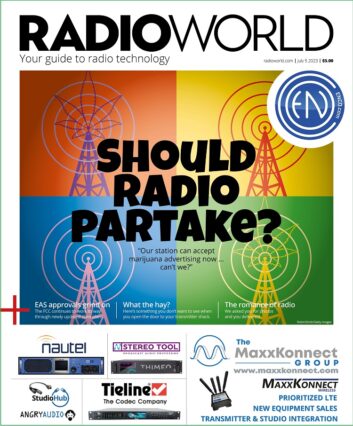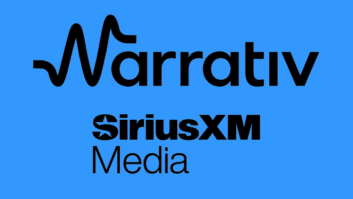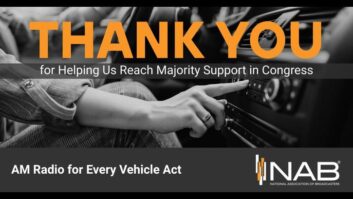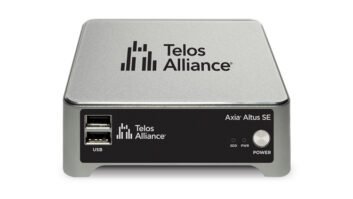
The author is a member with Telecommunications Law Professionals.
Hardly a week goes by that I’m not confronted with the question: “Marijuana has been legalized in my state, I can now take that advertising, right?”
For years, one of the biggest advertising issues confronting broadcasters is how to deal with the emerging legalization of medicinal cannabis and the emerging acceptance of recreational marijuana. As of the writing of this article, only two states (Idaho and Nebraska) have an outright ban on marijuana usage.
Twenty-two states, the District of Columbia and Guam have legalized recreational use of marijuana, according to U.S. News & World Report, while the National Conference of State Legislatures reports that 38 states, three territories and D.C. allow the medical use of cannabis products in some form.
Predictably, growers and dealers are seeking to advertise their products and services. In an ever more competitive advertising world, broadcasters want to know: Is it legal to broadcast advertising for marijuana?
Complex issue
While limited use and possession of marijuana is now permitted under state law in a majority of states, there are several important things broadcasters must keep in mind.
First, even if the state has legalized marijuana use, broadcasters must be aware of the limitations of that legalization. For example, many states have strict limits on the amount of marijuana one individual may have in their possession. Similarly, many states also require proof of residency to qualify for medical marijuana use. Advertisements that fail to account for any such limitations could be a problem for broadcasters that elect to air the advertisements, as it could be construed as the broadcaster encouraging illegal activity.
In such a case, the station could be subject to civil and criminal penalties, and to penalties before the FCC, including losing their broadcasting license.
Second, and most importantly for broadcasters, marijuana continues to be classified as an illegal Schedule One drug at a federal level under the Controlled Substances Act.
In a case called Raich v. Gonzales, the Supreme Court ruled the federal government can prosecute medical marijuana patients, even in states that permitted medical marijuana use. Some medical marijuana dispensaries in states where it has been legalized have been subject to drug enforcement raids from federal agencies.
While several attorneys general, including Merrick Garland at the federal level, have taken the position that the Department of Justice will not prosecute marijuana cases where the state has decriminalized its usage, they have nevertheless committed to “vigorously enforce” federal laws governing Schedule One drugs as a “core priority.”
These policies remind us that although medical marijuana may be legal under the laws of several states, in any quantity its use, possession or sale remains illegal under federal law. And even in states that have legalized marijuana use, U.S. attorneys may still decide to prosecute marijuana use or possession in circumstances where the individual failed to comply with the strict, stringent “strong and effective” state regulatory scheme.
[Sign Up for Radio World’s SmartBrief Newsletter]
What to do?
Accepting advertising for cannabis in any form, for medicinal or recreational purposes, is a dangerous proposition.
Even in a state that has legalized its use, the broadcaster is still subject to extensive risk. Before accepting any advertising the broadcaster would be required to conduct an extensive case-by-case analysis of each advertiser to determine whether the advertiser is legally operating, and an extensive review of the proposed advertisement to ensure it complies with any and all state requirements with respect to marijuana. Before airing any marijuana advertising, the broadcaster must ensure the advertisement is promoting a legal activity under the relevant state’s specific “strong and effective” regulatory scheme, which can be a difficult and expensive analysis.
Some may think the Controlled Substances Act (CSA) only applies to the advertiser and not to the medium that publishes its message (in this case the broadcaster). However, this issue is not black and white and a broadcaster may be found criminally liable.
For example, 18 U.S.C. §2 states that a person that aids or abets the commission of a crime is punishable for that crime, same as the person that committed the crime. The DOJ Criminal Resources Manual states that acts of the perpetrator become the acts of the aider and abettor and the latter can be charged with having done the acts even when the principal is not tried, convicted or even identified. Interpreting these rules, a broadcaster could potentially be found to aid and abet criminal activity by airing marijuana advertising.
It is rare for the rules to be interpreted in this fashion; however, the situation surrounding marijuana use might prove to be so high-profile and controversial that an aggressive U.S. attorney might consider prosecuting the broadcaster. Such a case would certainly involve First Amendment issues as well as other complicated defenses; however, victory might come only after a long and expensive legal experience.
Bottom line
Communications lawyers must advise FCC licensees that accepting cannabis or marijuana advertising involves significant risk. It could result in a challenge to your license that even a sympathetic FCC may not be able to avoid, as well as possible prosecution at a state or federal level. Even if successfully fended off, the cost of fighting that challenge could far exceed the benefit received from the advertising revenue.
A reasoned analysis would conclude that accepting such advertising presents substantial risk to the station. No matter how acceptable and entirely legal under local state law, the advertising of marijuana sale or use is still a violation of the Controlled Substances Act. Airing the advertisement could be considered a violation of federal criminal law. That can form the basis of an attack on the character qualifications of the licensee before the FCC and place the broadcaster license at risk.
If such a challenge is brought, regardless of how FCC officials might feel about the seriousness of the issue, under the Communications Act they may still be required to evaluate the licensee’s character. Such an evaluation could result in a lost or conditional license and quite probably, a very hefty legal bill.
This column is provided for general information purposes only and should not be relied upon as legal advice pertaining to any specific factual situation. Legal decisions should be made only after proper consultation with a legal professional of your choosing.







